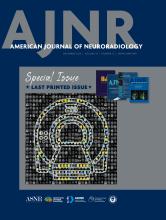Case of the Week
Section Editors: Matylda Machnowska1 and Anvita Pauranik2
1University of Toronto, Toronto, Ontario, Canada
2BC Children's Hospital, University of British Columbia, Vancouver, British Columbia, Canada
Sign up to receive an email alert when a new Case of the Week is posted.
October 22, 2020
Transient Global Amnesia
- Background:
- Syndrome characterized by the rapid onset of anterograde amnesia that lasts up to 24 hours
- Although a definitive etiology is not yet known, various factors, such as migraine, focal ischemia, venous flow abnormalities, and epileptic phenomena, have been suggested to be involved in the pathophysiology.
- Clinical Presentation:
- Presence of an anterograde amnesia and iterative questioning, no clouding of consciousness or loss of personal identity
- No focal neurologic or epileptic signs
- Mild nonspecific symptoms (headache, nausea, dizziness) may also be present during the acute phase.
- Key Diagnostic Features:
-
Diagnosis is based mainly on clinical criteria.
-
MRI can help to support the diagnosis; punctate hippocampal diffusion-weighted abnormalities are described in up to 80% of patients and usually appear 24 to 72 hours after TGA onset.
-
- Differential Diagnoses:
- Ischemic stroke: DWI restriction in a vascular territory
- Temporal lobe seizures: Cortical swelling and hyperintensity on T2-weighted image; DWI restriction, with corresponding EEG changes
- Migraine with aura: Normal neuroimaging
- Intoxications or psychiatric disorders: Neuroimaging may be abnormal in drug-related toxicity; findings would depend on the agent.
- Treatment:
- There is no specific treatment. Usually the patient is observed until symptoms resolve.










